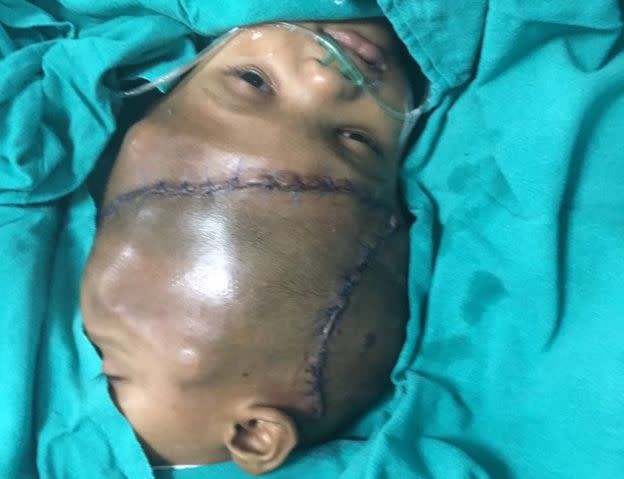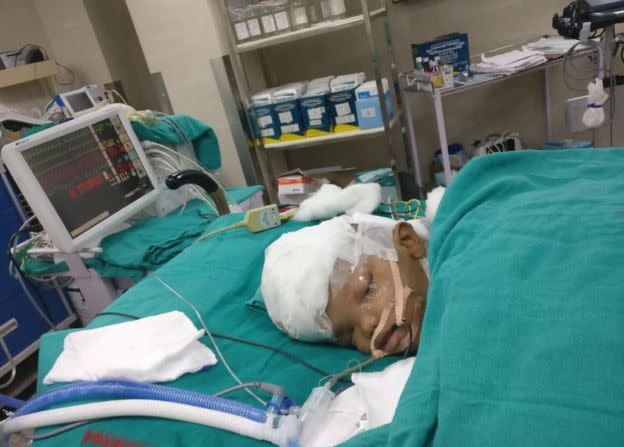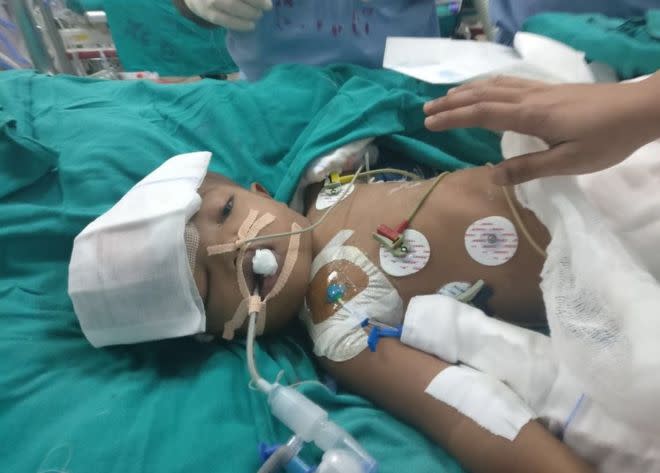Conjoined twins aged two who are joined at the HEAD are successfully separated after 16-hour surgery

Twin Indian boys aged two who were joined by the head have been successfully separated by surgeons in a pioneering operation.
Jaga and Kalia shared blood vessels and brain tissue – a condition that only affects one in every three million births.
A team of 30 medics in Delhi spent 16 hours completing the surgery – the first time an operation of its kind has ever been successful.
During the surgery the twins lost 3.5 litres of blood and had to have new blood nerves created.
Similar operations have been performed in India, but the children involved died during the procedure on both occasions.

Director of the All India Institute of Medical Sciences, Randeep Guleria, told the Press Trust of India the ‘next 18 days would be extremely critical to ascertain the success of the surgery’.
The condition is known as ‘craniopagus’, and those born with it have a 50% chance of survival for the first 24 hours.
The twins, from Milipada village, in eastern Orissa state, were separated at 8.45 pm and the covering of the brain using skin flap and graft took four to five hours afterwards.
Most popular on Yahoo News UK:
These are the most powerful passports in the world
UK weather: Many Brits to get first frost of the winter this weekend
Jealous lover jailed for life after ‘brutally’ murdering her sister so she could steal husband
Sadistic shopkeeper tortures and ties up mouse to ‘teach it not to steal’
Daily Mail accused of ‘starting race war’ after over Cambridge University ethnicity row
The twins have now not only surpassed the survival odds, but have also made it through the life-changing surgery.
However, the complications for the miracle twins don’t end there.
‘Both the children have other health issues as well. While Jaga has heart issues, Kalia has kidney problems,’ neurosurgeon A K Mahapatra said.

‘Though initially Jaga was healthier, now his condition has deteriorated. Kalia is better,’ he continued.
‘The children have been separated. There were many challenges in this surgery which we have never seen before.
‘The skin grafting was also done and later extra care had to be taken for the blood, nutrition and overall health of the two so that they could sustain during the surgery’
Previously, two similar operations took place in the country, but both times the children involved died during the procedure.

 Yahoo News
Yahoo News 
